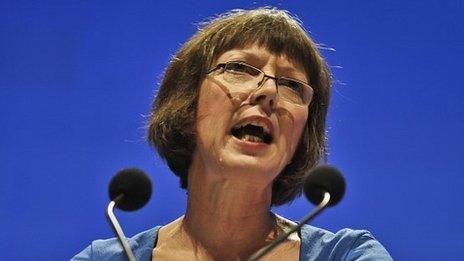Unions push for 'fairness' after the election
- Published
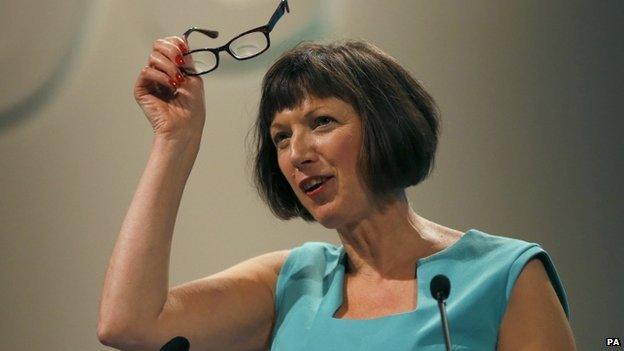
Frances O'Grady put the TUC on an election footing
As the last TUC annual conference before the general election comes to an end, what are unions asking for?
It was quieter than normal.
The TUC annual congress at Liverpool's BT Convention Centre lacked its usual fire and brimstone. Perhaps in part because of the death of Bob Crow, the ultra-combative general secretary of the RMT transport union, earlier this year, colour was not in abundance by the banks of the Mersey.
Under the leadership of Frances O'Grady, threats of general strikes over wages and conditions have subsided. Publicity stunts were at a minimum.
She was at pains to emphasise that her movement was living in the "real world", dealing with people's genuine concerns rather than posturing.
The items on the agenda reflected this. With the economy improving, Ms O'Grady and the leaders of the unions have moved on from the coalition-bashing of recent years.
£10 demand
There were still some class-based jokes at the expense of the Conservatives, particularly George Osborne and David Cameron, and criticism of the party's cuts programme. But the overall demand can be characterised as one of "fairness"; the conference's unmemorable slogan being: "Britain needs a pay rise".
In other words, they want pay packets which have not kept pace with inflation, to reflect the upturn.
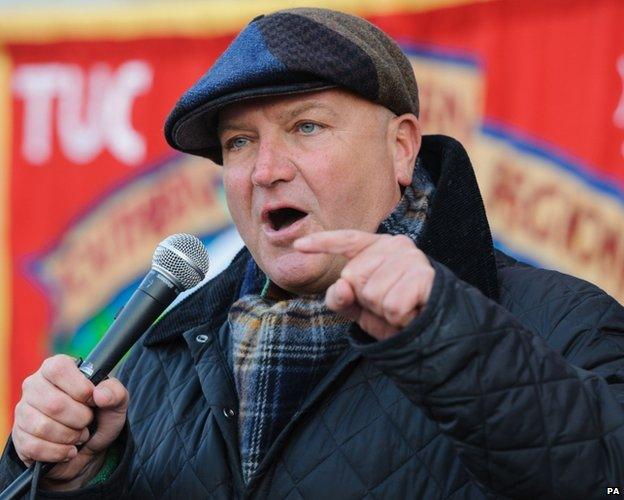
Things were quieter without Bob Crow
A motion, passed unanimously, for a minimum wage of £10 was meant to emphasise this. Delegates realise this amount - about 50% higher than the current level - is unlikely to become policy for any of the main political parties, but it provided a memorable figure to accompany their ongoing demands for a "living wage".
Shadow business secretary Chuka Umunna, the most senior Labour figure to address the 500 delegates, promised a reform of industrial tribunals which impose fees on people launching claims. He was more coy on the £10 demand.
But any animosity between general secretaries and Labour leader Ed Miliband over his plans to alter the relationship between the party and unions seemed to evaporate. The "big three" - the GMB's Paul Kenny, Unite's Len McCluskey and Unison's Dave Prentis - said nothing to irk Mr Miliband. He went out of his way to praise the movement's work.
'Fundamental choice'
For her part, Ms O'Grady made some easily deciphered political hints. Although proclaiming neutrality on the issue of Scottish independence, she asked whether it was better to be "alone" in the world or to have strength in numbers.
And, on the broader political front, she was as effusive about the need to support Labour next May as she could be given the constraints she faces as the head of an organisation representing 54 separate unions.
"There are just 240 days to go before the general election that is one of the most important at which any of us will have a vote," she said in her speech. "It's a fundamental choice, about the kind of country that we want to be - not just for the next few years but for a generation."
Unsurprisingly, despite their recent spats, Ms O'Grady and most of the unions want a Labour government. The whole point of the conference, just eight months before the UK goes to the polls again, was to let Mr Miliband and his friends know on what terms he can enjoy their ongoing support.
The presence of Bank of England governor Mark Carney, received with politeness on Tuesday, was another nod in a businesslike direction. His promise of wage rises next year was broadly welcomed; the hint towards interest rate rises less so. But the engagement with union members on the subject was a welcome PR boost for the TUC.
Ms O'Grady's warm, friendly style may be in contrast to the traditional beer-and-sandwiches, ranting-at-the-picket line image her movement has in many people's minds. But she clearly does not envisage any diminution of the unions' powers as the country recovers from its worst post-war downturn. Quite the opposite, in fact.
- Published5 September 2014
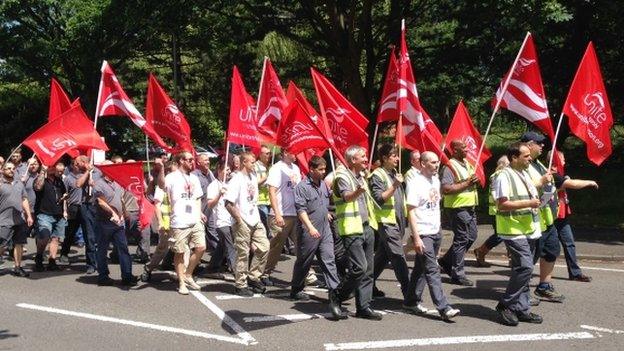
- Published28 August 2014
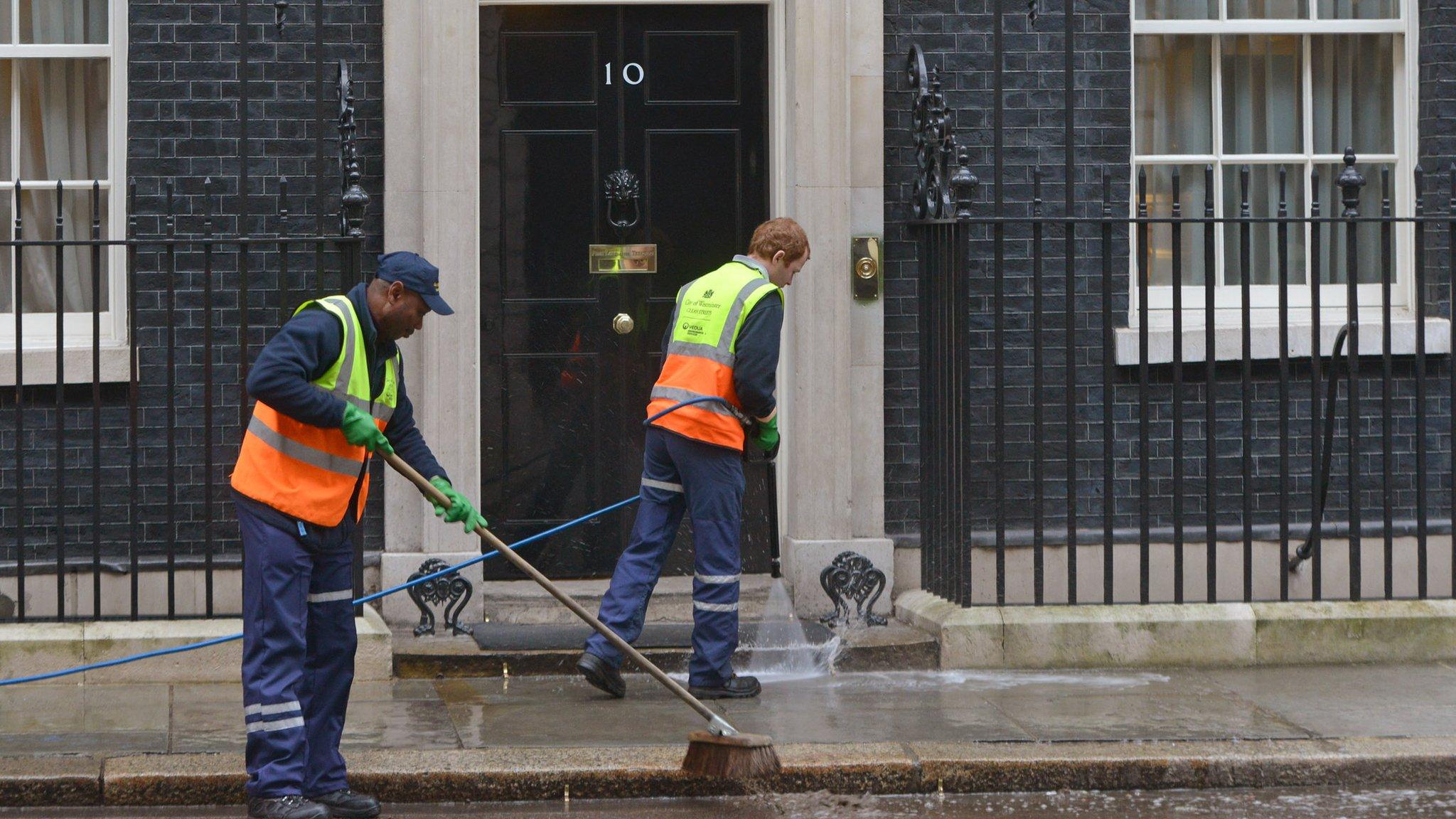
- Published10 July 2014
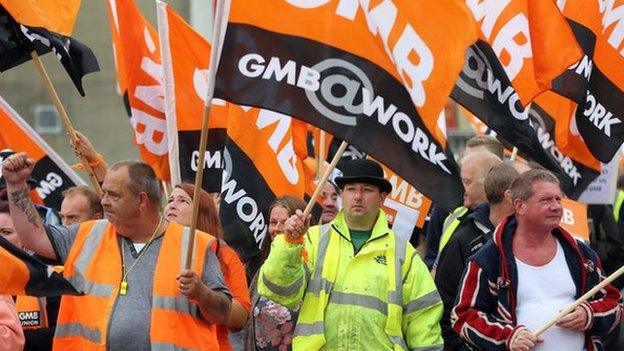
- Published10 September 2012
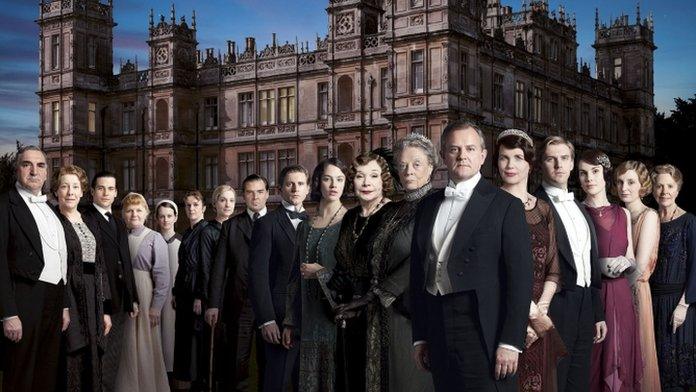
- Published9 September 2013
